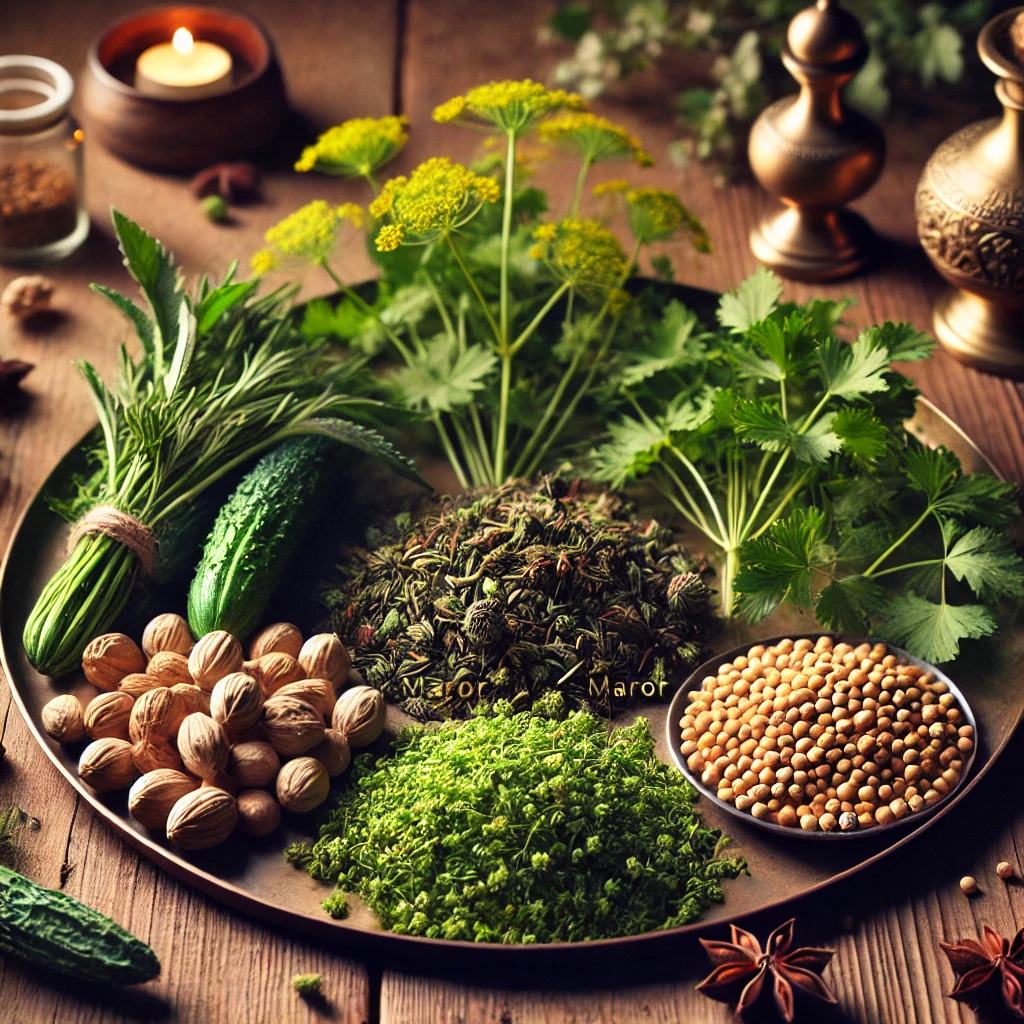
The Power of Herbs in Scripture
If you’ve ever walked through a garden, you know the captivating effect of herbs. Their scents, colors, and uses make them essential in cooking, medicine, and even history. But did you know that herbs are also deeply significant in the Bible?
Many believers overlook these plants in Scripture, dismissing them as minor details. However, God designed every plant with a purpose. Understanding their role in the Bible can open new doors to spiritual insight and appreciation for God’s intricate design. Let’s explore five symbolic herbs mentioned in Scripture and their deeper meanings.
1. Mandrake: A Symbol of Desire and God’s Timing
Mandrakes make a surprising appearance in the book of Genesis. In the intense sibling rivalry between Leah and Rachel, mandrakes were caught in the crossfire (Genesis 30:14-16). People in ancient times believed this plant had fertility-enhancing properties, which is why Rachel desperately sought them.
But the story of the mandrakes teaches a deeper lesson. Instead of trusting in God’s plan, Rachel attempted to manipulate circumstances to get what she wanted. However, God was already working behind the scenes. He eventually blessed her with a son, Joseph, in His perfect timing (Genesis 30:22-24).
Life Application: Have you ever tried to rush God’s timing? Just like Rachel, we may attempt to take matters into our own hands. But God’s plans are always better than our own. Trust His timing, and He will bring about His best for you.
2. Maror (Bitter Herbs): Remembering Hardship and Deliverance
During the first Passover, God commanded the Israelites to eat bitter herbs (maror) along with lamb and unleavened bread (Exodus 12:8). These herbs served as a reminder of their bitter slavery in Egypt.
Bitter experiences can be painful, but they also shape us. The Israelites needed to remember their past so they would never take their freedom for granted. Similarly, believers today should never forget the deliverance Jesus provided through His sacrifice.
Life Application: Think about a hardship you have faced. What did you learn from it? Just as the Israelites remembered their past, we should reflect on our struggles and recognize how God has worked through them.
3. Coriander Seed: A Picture of God’s Provision
Coriander seed is mentioned in connection with manna, the miraculous food God provided for the Israelites in the wilderness (Exodus 16:31, Numbers 11:7). This daily provision reminded them that God was their sustainer.
Jesus later used this imagery to reveal a greater truth. He declared Himself the Bread of Life (John 6:35), explaining that just as manna sustained the Israelites physically, He sustains believers spiritually.
Life Application: Are you relying on God’s provision daily? Just as the Israelites depended on manna, we must trust Jesus to sustain us spiritually. Spend time in prayer and the Word to be nourished by His presence.
4. Hyssop: A Symbol of Cleansing and Redemption
Hyssop appears multiple times in the Bible as a cleansing agent. It was used to sprinkle blood on the Israelites’ doorposts during the first Passover (Exodus 12:22), symbolizing their protection and redemption.
Later, King David referenced hyssop when he sought spiritual cleansing after his sin with Bathsheba (Psalm 51:7). In the New Testament, hyssop was present at the crucifixion of Jesus when He was given wine vinegar on a stalk of hyssop (John 19:29).
Life Application: Hyssop reminds us of our need for spiritual cleansing. Are there areas in your life that need God’s forgiveness? Ask Him to purify your heart and restore your relationship with Him.
5. Frankincense: A Fragrant Offering of Worship
Frankincense was an expensive resin used in worship, sacrifices, and anointing oils (Exodus 30:34-38). It was one of the gifts the wise men brought to Jesus, symbolizing His priestly role (Matthew 2:11).
This herb represents worship and devotion to God. Just as frankincense was offered in the temple, our lives should be a fragrant offering to the Lord.
Life Application: Is your life a pleasing offering to God? Worship is more than just singing in church—it’s a lifestyle. Honor God in all you do, and let your life be a sweet fragrance before Him.
Interactive Element: Which Biblical Herb Do You Relate to Most?
Take this quick quiz to find out which of these biblical herbs best represents your current season of life:
- Do you struggle with waiting on God’s timing? (Mandrake)
- Are you going through a bitter season but trusting in God? (Maror)
- Do you need to trust in God’s daily provision more? (Coriander Seed)
- Are you seeking spiritual cleansing and renewal? (Hyssop)
- Is your worship life thriving? (Frankincense)
Let us know in the comments which herb speaks to you the most!
Conclusion: God’s Purpose in Every Detail
Every detail in the Bible matters—even the plants! These herbs are more than just ingredients; they carry deep spiritual lessons.
As you reflect on these symbolic herbs, remember that God has a plan for every part of creation—including you. Trust in His timing, provision, and cleansing power, and let your life be a fragrant offering to Him.
Poll: Which biblical herb interests you the most?
- Mandrake
- Maror
- Coriander Seed
- Hyssop
- Frankincense
Vote and share your thoughts in the comments!
Please subscribe to our YouTube channel at https://www.youtube.com/@PossibilityPluspm for inspiring videos
